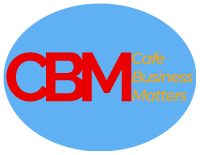Congratulations! You did it—you finally own a cafe! What an exhilarating feeling to stand at the centre of your new business, with a mind full of ideas and aspirations. You’ve envisioned a space that reflects your dreams, a unique little cafe that you’re eager to grow and shape into something special.
But pause for a moment—why did you choose this path? Did you see a gap in the market? Or was there an opportunity waiting to be seized?
The Reality of Owning a Cafe
That feeling of accomplishment when buying your first café is unforgettable. I know it well, having experienced it with every business I’ve bought. The planning, the late nights, the endless to-do lists—it’s all behind you now, and you deserve to celebrate.
But what about your customers? What do they think of your concept? Will your cafe become their go-to spot?
The First Few Months
As time passes, reality starts to set in. Customers come and go, some become familiar regulars, but who are they? Are they testing the waters? Were they waiting for you as a new owner to judge if it’s what they are seeking? Or are they just curious about your offerings?
By now you should have defined your signature offer—the one thing that sets your cafe apart. What’s your specialty? What will people remember you for? What will keep them as repeat customers?
The Questions Begin
Gradually, the initial excitement fades, replaced by a flood of unanswered questions. You revisit your market research, analyse the surveys you conducted, and ensure that you have implemented your findings. But something still feels off. Why?
Don’t second-guess yourself. Stay the course. Within six months, the initial buzz will settle, and your cafe will either blend into the background—or stand out as a local favourite.
So, how do you make sure people stay interested?
The Overwhelming Workload
Running a cafe—or any business—can feel daunting. The skills you need to master can seem endless:
Negotiating with suppliers on pricing and deliveries
Managing accounts and paying invoices on time
Planning daily, weekly, and monthly work and prep schedules
Learning and overseeing your POS system
Handling cashiering and banking reconciliation
Analysing sales data for menu adjustments
Managing payroll and staff rosters
Training employees and maintaining quality control
Engaging with customers and gathering feedback
Handling catering requests and compiling quotes
Complying with industry regulations
Suddenly, your dream has become a 60–70-hour workweek.
Are You Ready to Delegate?
Can you step back and trust others to help carry the load? If you don’t start planning now, you’ll find yourself drowning in daily operations, struggling to keep up, and feeling like you’re going in circles.
Your customers and staff can sense when you’re overwhelmed. The last thing you want is for them to lose confidence in your leadership. Small business owners often wear multiple hats—until they can afford to hire people to fill those roles. The question is, how long can you sustain this pace?
Learning From Experience
No matter where you are in your cafe journey, I want to share my successes and failures with you. My goal is to help simplify your operations, provide guidance, and challenge you with actionable tasks that will push your business forward.
Do you have structured systems and procedures in place? Because today, in this industry, you can’t afford to be average.
More Than Just Advice—A Hands-On Approach
This website isn’t just a “Read and Learn” resource. It’s an action-driven educational platform. You’ll get out of it what you put in. While many websites tell you what and why, they rarely show you how. My purpose here is to bridge that gap—to show you exactly how to implement changes that will drive your cafe’s success.
So, let’s start with one simple question:
Could you leave your cafe for a week on short notice?
If the answer is no, let’s work on changing that.

